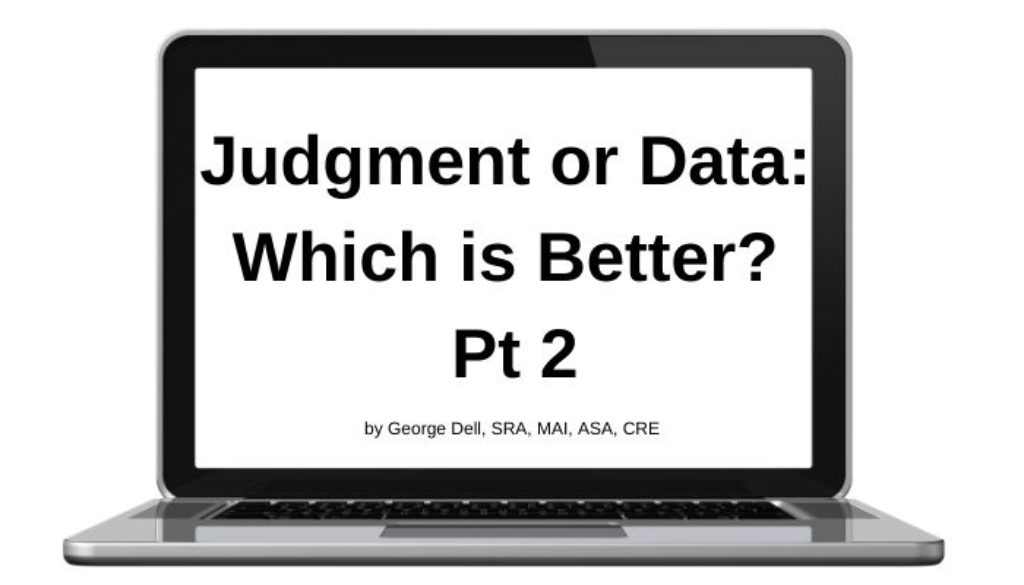Judgment vs. Data. Computer quants vs field experts. Each thinks they have a better hammer. “Experts” think the quants are hammering screws. Quants think the experts have their eyes closed. Both have sore thumbs. Judgment
Here, in part 2 we will look at the field-related expert, excelling in experience and judgment. In part 3, we will look at the data analysts’ viewpoints. Read part 1 here.
In my graduate econometrics classes I heard two “methodology” words: empiricism and heuristics.
- Empirical analysis focuses on real-world evidence and measures, rather than theory and concepts.
- Heuristic analysis focuses on mental efficiency to help make judgments quick and relevant.
Appraisal is a practical solution to a complex problem. This heuristic approach recognizes the amount of time needed and information available from which to arrive at a conclusion – an opinion. Prior knowledge, experience, and understanding of economic asset theory and concepts is critical. Appraisal has long worked well. It continues to do so. (The challenger, AVMs and their empiricism is part 3). Thus appraisal must focus on believability – “credibility” in the standards.
Psychologists have provided some possible behavioral reasons for why we may prefer heuristics.
- Attributes: People prefer simpler and ‘common sense’ to complex and difficult.
- Effort: It reduces cognitive overwhelm. (Like more than six or seven comparable sales).
- Fast and cheap: “Mental algorithms” instantly provide good judgment, and are pretty accurate.
Our brains, both the appraiser/analyst’s, and the user’s (lender, investor, regulator), can only process a small amount of the available information. “Big data overwhelm.”
There are different types of heuristics:
Availability. It is easy to bring some things into mind. In the case of valuation, someone with experience in a property type or neighborhood can quickly recall relevant examples.
Similarity. This calls for making decisions by comparing the problem with similar representative situations. Like comparable sales – or representative rates of return.
Affect. Implicitly, heuristic approaches mean that prior experience, education, and even performance standards – can create errors or bias the results. Just because something happened twice, does not mean it will happen the next time. Prior experience can put visors on the eyes, and narrow our options. This can extend to stereotypes and even prejudice. Yes. (Not me of course!)
It appears common sense, experience, knowledge of concepts, and good education can make heuristic methods fairly reliable, cost-effective, and practical – particularly where there is poor data and complex relationships such as in elements of comparison.
The downside of heuristic, availability/similarity approaches is that bias is inadvertently (or intentionally) introduced. What is lacking in today’s appraisal education is a modern way to deal with inherent human foibles and biases. Even ethical behavior can be taught and learned where ethical rules fail.

October 28, 2020 @ 10:03 am
Without data, you have nothing to base your judgement upon. I have told people, “now, if I was a realtor, i could just hold up my thumb and squint and tell you within odd cents how much it’s worth, but unfortunately, I’m limited to going by market data…” as u can imagine, i dont make as much money as some, but i still have a license after 22 years…